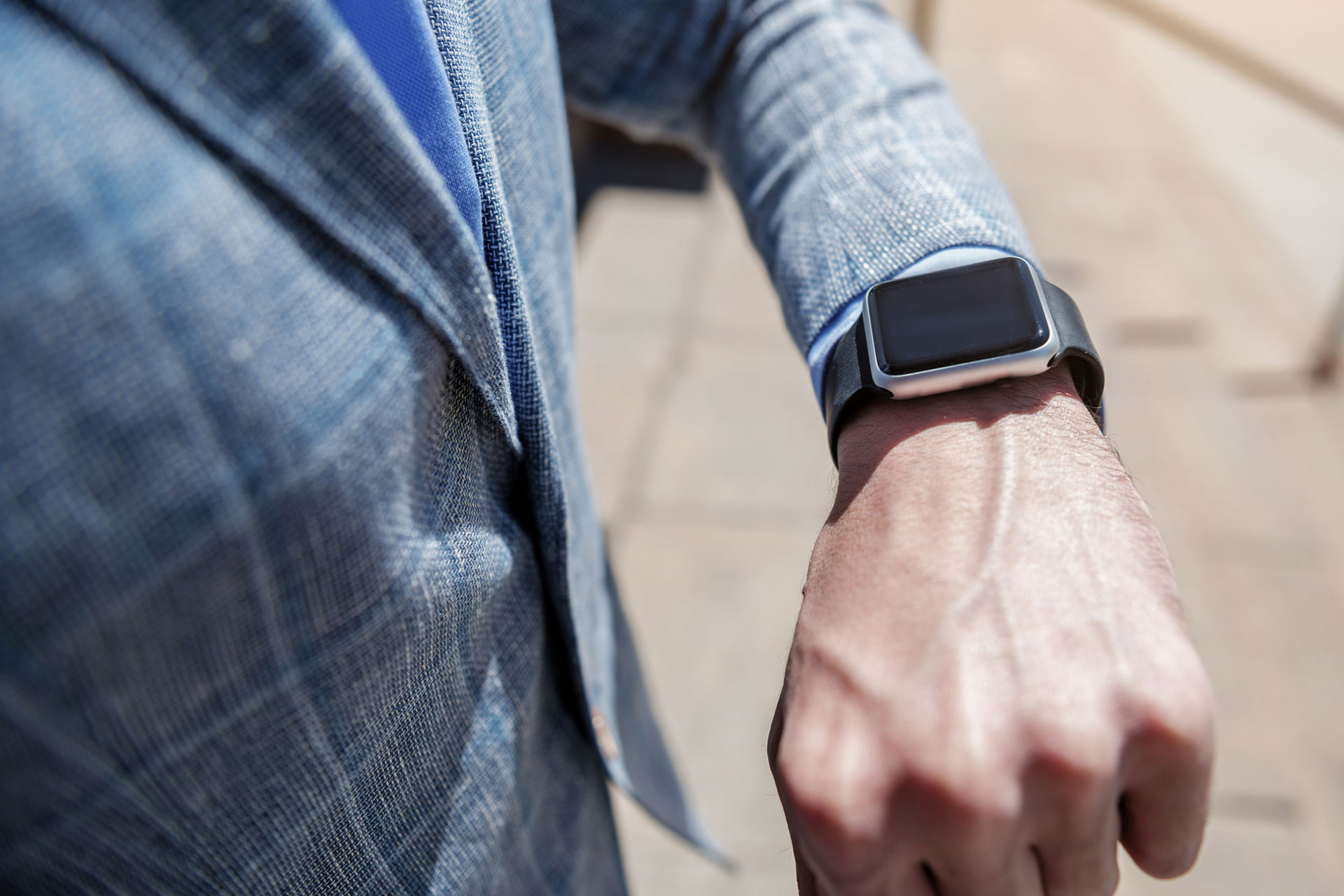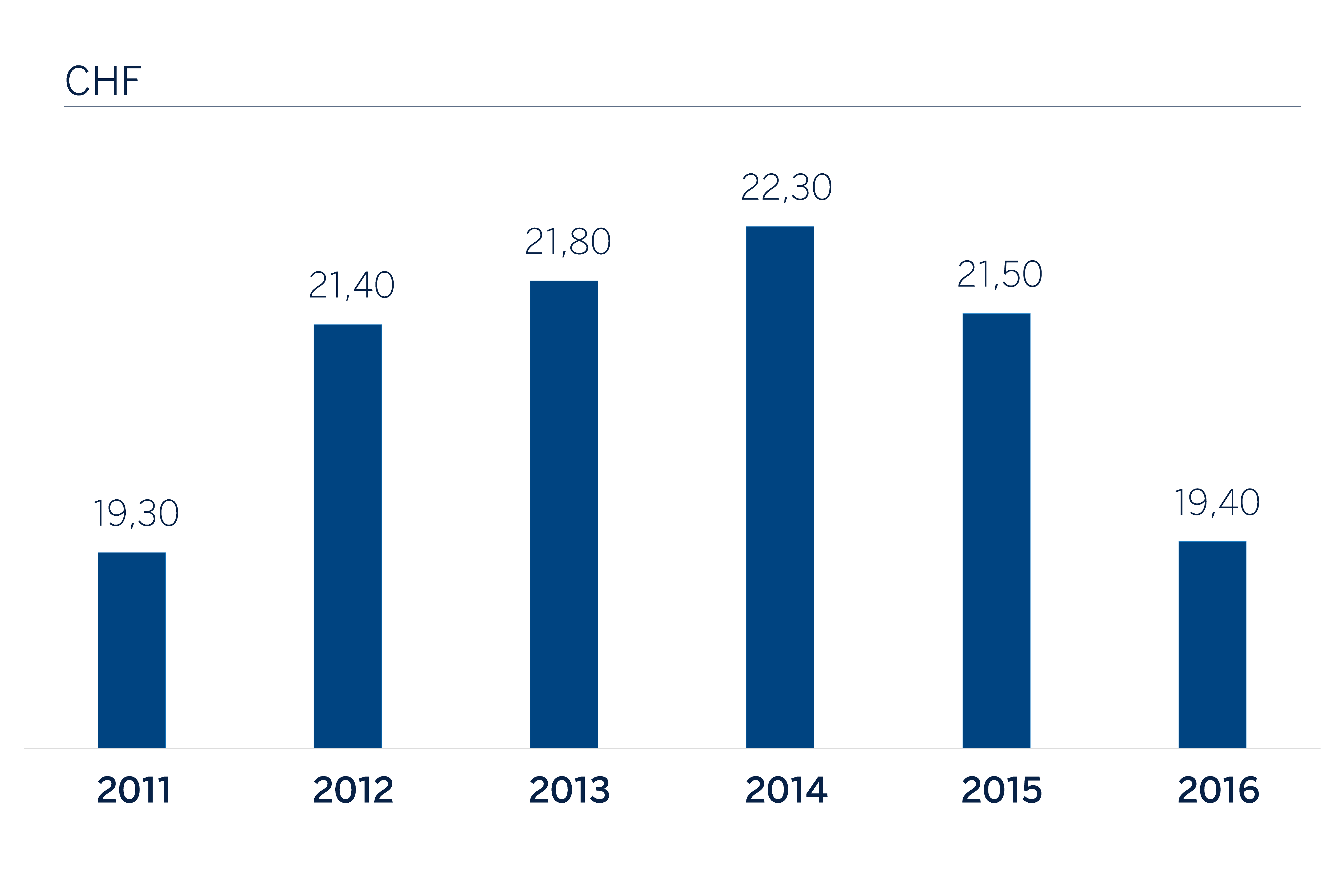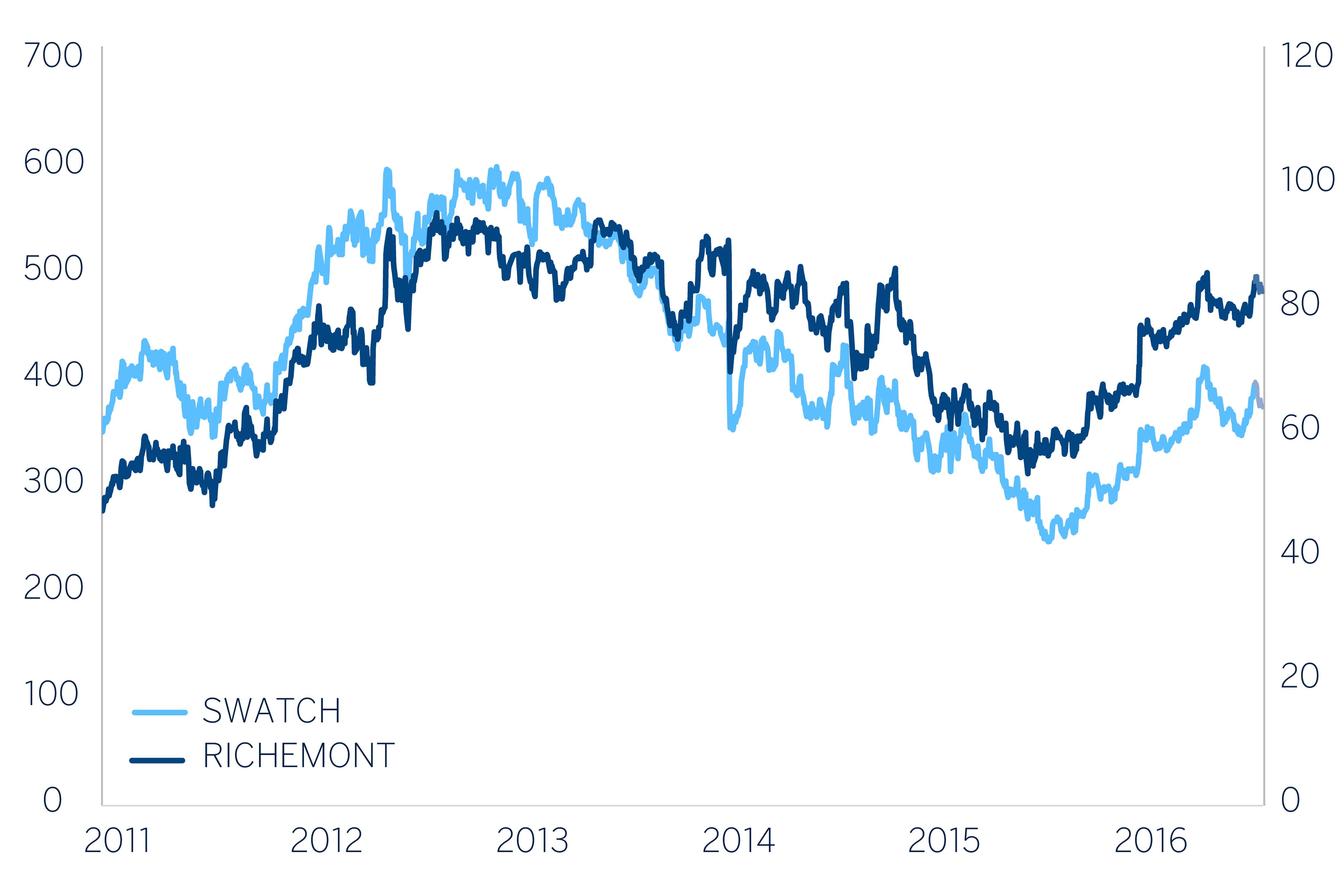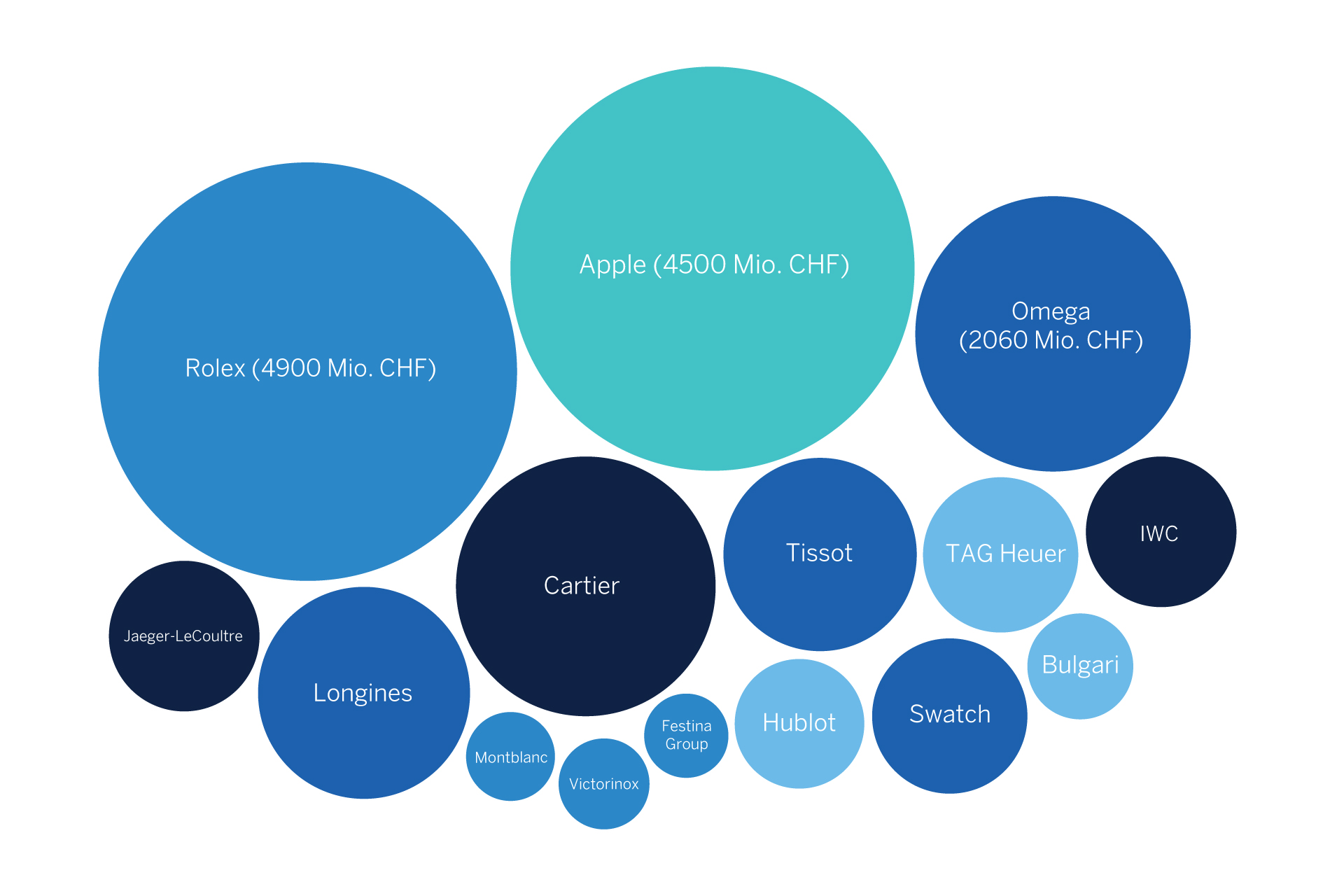The greatest challenge on the Swiss watch industry

The traditional Swiss watch is a synonym of quality, elegance and luxury, features that have made it a benchmark in the sector. Such is the case that its watches account for 57% of the world market and represent a large source of income for the sound Swiss economy. The sector is, however, far from at its best and the arrival of smartwatches on the scene has been a disruptive force that is putting the industry’s capacity and adaptation severely to the test.
During the period spanning 2011 to 2014, Swiss watch exports just grew and grew, largely due to good sales figures in Asia, with Japan, China and Hong Kong heading the field. But this trend has since then altered and at the end of 2016 export figures had fallen by almost 3 billion. We can see the trend on the accompanying graph:
 The same conclusions can be drawn regarding the stock market performance of the main companies in the sector, Swatch and Richemont, which paint a very similar picture:
The same conclusions can be drawn regarding the stock market performance of the main companies in the sector, Swatch and Richemont, which paint a very similar picture:
 In parallel, we have the strong progress in smartwatch sales.
In parallel, we have the strong progress in smartwatch sales.
 The industry’s response has not been long in coming as we have seen how the major watchmakers have begun to seek formulas to combat technology’s inevitable inclusion in their business. Brands like Tissot or Tag Heuer have launched their first smartwatches but it is true that their sales figures have been very discrete.
It is obvious that the industry has a great challenge ahead of it and signing agreements with Google, Qualcomm or other technology companies is the formula being chosen to attempt to tackle it.
The industry’s response has not been long in coming as we have seen how the major watchmakers have begun to seek formulas to combat technology’s inevitable inclusion in their business. Brands like Tissot or Tag Heuer have launched their first smartwatches but it is true that their sales figures have been very discrete.
It is obvious that the industry has a great challenge ahead of it and signing agreements with Google, Qualcomm or other technology companies is the formula being chosen to attempt to tackle it.
 The same conclusions can be drawn regarding the stock market performance of the main companies in the sector, Swatch and Richemont, which paint a very similar picture:
The same conclusions can be drawn regarding the stock market performance of the main companies in the sector, Swatch and Richemont, which paint a very similar picture:
 In parallel, we have the strong progress in smartwatch sales.
In parallel, we have the strong progress in smartwatch sales.
Since the first smartwatches were launched by Motorola, Samsung and Google in 2014, their impact on the traditional watch market has been evident.However, general consensus agrees that it was the launch of the Apple Watch in April 2015 that caused the deepest wound. According to data published by the Federation of the Swiss Watch Industry, in 2016, Apple sold more watches than any Swiss watch brand, with the sole exception of Rolex.
 The industry’s response has not been long in coming as we have seen how the major watchmakers have begun to seek formulas to combat technology’s inevitable inclusion in their business. Brands like Tissot or Tag Heuer have launched their first smartwatches but it is true that their sales figures have been very discrete.
It is obvious that the industry has a great challenge ahead of it and signing agreements with Google, Qualcomm or other technology companies is the formula being chosen to attempt to tackle it.
The industry’s response has not been long in coming as we have seen how the major watchmakers have begun to seek formulas to combat technology’s inevitable inclusion in their business. Brands like Tissot or Tag Heuer have launched their first smartwatches but it is true that their sales figures have been very discrete.
It is obvious that the industry has a great challenge ahead of it and signing agreements with Google, Qualcomm or other technology companies is the formula being chosen to attempt to tackle it.















